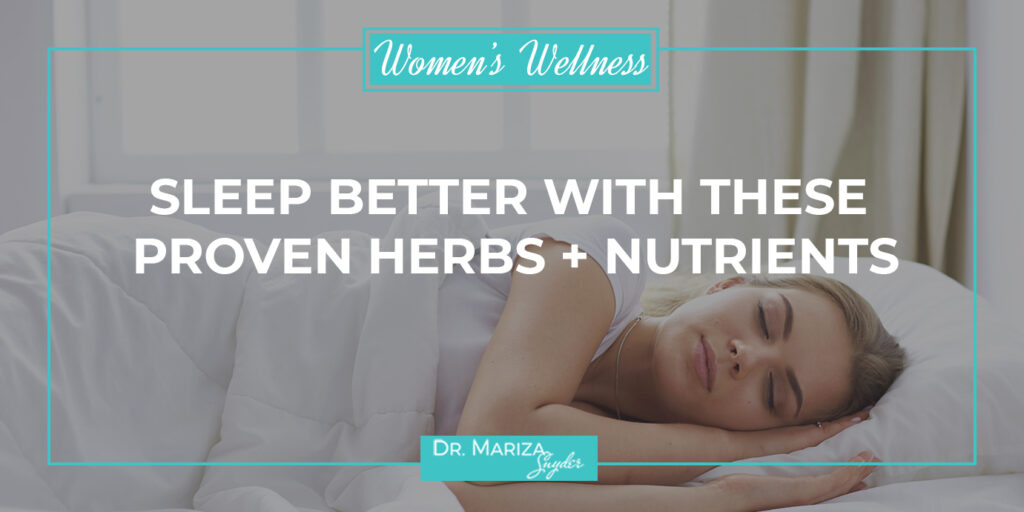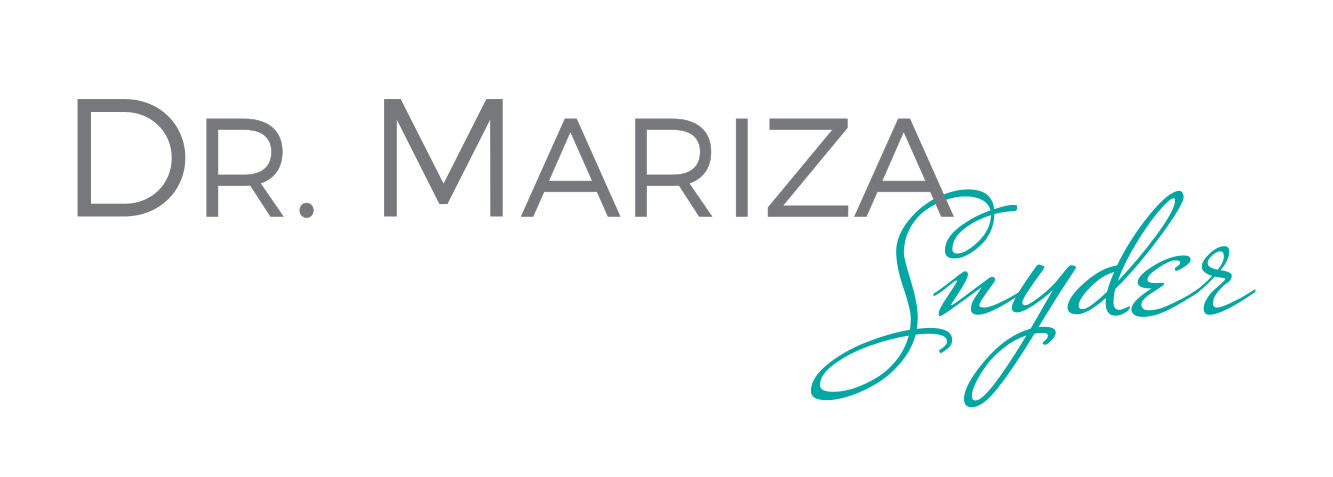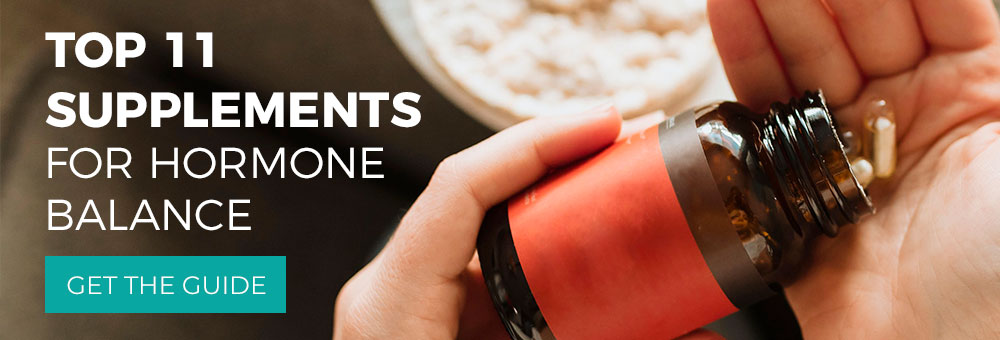
Do you have trouble getting to sleep and then staying asleep, even when you go to bed at a reasonable hour and do all the “right” things?
Does it feel like you lay awake for hours, unable to close out of the dozens of proverbial tabs open in your mind?
If you are experiencing sleep problems, don’t worry – you’re not alone. As it turns out, 70 million Americans share your struggle.
There is often a hyper-focus around diet and exercise when it comes to health. And as I’ve made abundantly clear, there are very few things that are MORE important than nutrition and movement – and today we need to chat about one of them: Sleep.
Sleep is essential to health and allows the mind and body to recharge and heal. So I caution you to reconsider when your favorite influencer or CEO implies that if you want to achieve your dreams you should be working while everyone else is sleeping or waking up before sunrise to get that workout in. You can be productive AND make sure you get the rest you need – you don’t have to sacrifice one for the other.
As with any health issue, it’s essential to look at the root cause before jumping the gun to manage symptoms – otherwise, it’s just putting a Band-Aid on a bullet wound. Here are some common causes of sleep problems.
Common Causes of Sleep Problems
Stress.
Another often-overlooked culprit to whole-body health is unmanaged stress. I’ve said it before and I’ll say it again: stress literally kills. And the havoc it wreaks on your body will exhaust you, deplete your body of key minerals needed to function throughout the day, and zap any potential of restful sleep.
How sleep disrupts your circadian rhythm.
Modern-day demands and blue-light screen addictions that take us further away from how we were intended to live are disadvantageous to our health, but especially when it comes to sleep. Your circadian rhythm – your body’s internal clock that regulates waking, sleeping, body temperature, eating habits, and more – plays a big part in the quality and duration of your sleep.
How sleep affects blood sugar instability.
Your sleeping habits can have a profound effect on blood sugar levels. For someone with a regular sleep schedule, blood sugar levels begin to spike between 4:00 – 8:00 a.m., teeing up your insulin to stabilize your blood sugar levels. For those who have diabetes or are predisposed to the disease, insulin cannot facilitate this process, causing blood sugar levels to steadily rise.
How sleep is affected by lack of exercise.
Move over Ambien, because research shows (1) exercise has similar effects to sleeping pills (but without the potential side effects). Data also shows that lack of regular exercise can be a precursor to insomnia. Not only can regular exercise improve mental health, but it can also boost those zzz’s at night.
How sleep leads to alcohol, caffeine, and sugar reliance throughout the day.
That glass of wine with dinner may make you feel calmer and more relaxed in the moment, but make no mistake: alcohol consumption is counterproductive to achieving restful sleep. And caffeine, a psychoactive stimulant, yields the opposite effect of alcohol but contributes to stubborn sleep issues just the same. Additionally, diets high in sugar contribute to overall sleeplessness and even leave you craving more sugar. Long story short? This is a toxic trifecta you want to avoid or, at the very least, limit if sleep issues leave you feeling fatigued and frail consistently.
The Secret to Better Sleep
There is no magic pill that is a cure for all ills. Still, there are high-quality, science-backed supplements that contain natural herbs and nutrients and arguably provide better relief than their pharmaceutical counterparts. Here are 3 reasons someone struggling with sleep issues should give supplements a try.
#1 – Supplements are non-habit-forming.
Sleeping pills may help you fall asleep, but at what cost? Not only are many conventional sedatives habit-forming, but that good night’s sleep might pack with it some perilous side effects you weren’t dreaming of, like impaired driving (even the day after taking the pill), sleepwalking, amnesia, and being prone to accidents like falling. Further, with prolonged use, you quickly build up a tolerance which means you still experience side effects without the benefits – arguably not the best trade-off.
#2 – No next-day drowsiness.
Even taken as directed, extended-release forms of certain sedatives can cause impairment the following day. So while those extra hours of much-needed sleep may be helpful, that daytime drowsiness that follows can make everyday tasks like driving a vehicle more challenging or even dangerous.
#3 – Natural Support for your body’s innate rhythms.
Many of the ingredients in supplements have overarching benefits that improve other health problems. Nature knows best. That’s why supplementing with magnesium, for example, doesn’t just mean better sleep – it could mean reducing anxiety, depression, inflammation, and so much more. Supplements that contain chamomile will have you dreaming in technicolor in no time, but may also reduce inflammation and promote digestive health. By opting for natural support, you reap a bounty of benefits that pharmaceuticals just can’t provide.
The first step is learning which herbs and nutrients promote better sleep. Many of these multi-faceted, time-tested elements even work synergistically with each other.
Must-Try Herbs and Nutrients for Better Sleep
Magnesium
Some 75% of Americans are deficient in magnesium which plays a pivotal role in hundreds of the body’s biochemical processes. Magnesium is naturally present in many foods, but with diminishing soil quality over the last few decades, it can be hard to consume enough even with a mostly nutrient-dense diet. Magnesium Restore contains the most absorbable form of magnesium so your body can soak up the most benefits and be gently led back to proper balance where sleep will be higher quality and more refreshing.
Valerian
If you wondered what a tall, flowering grassland plant is capable of, wonder no more. Studies show this incredible plant can help you fall asleep faster and sleep better. This age-old herb is proven to increase GABA in the brain – so check your favorite sleepy-time tea for this ingredient or snag my Zen Sleep supplement. Formulated with botanicals, nutrients, and neurotransmitters that naturally support your body as it drifts into rest, you can reap the benefits of a good night’s sleep without the next-day grogginess that accompanies conventional sleep aids.
Lemon Balm
When used synergistically with other sleep-friendly herbs like valerian and chamomile, lemon balm can facilitate more restful sleep and reduce anxiety and stress. Remix the timeless Arnold Palmer with a powerful blend of fresh lemon balm, lemongrass, lemon verbena leaves, and lemon zest. Mix freshly-brewed black or green tea with the lemon-herb mixture for a refreshing summer thirst quencher. You can also use lemon balm to make handy ice cubes to add to a glass of water. When life gives you lemons, make lemon balm!
Chamomile
Used as a mild sedative, like most herbs, chamomile also boasts many other benefits including reducing inflammation, stabilizing blood sugar levels, improving digestive health, and even has proven anti-cancer properties. What makes it so effective for improving sleep quality is a specific antioxidant known as apigenin, which helps the muscles relax and transition into sleep.
GABA
GABA, or gamma-aminobutyric acid, is a chemical in the brain and also found in some foods. Considered the brain’s brake pedal, GABA downshifts the brain and body, facilitating sleep, reducing stress, promoting calmness, and is a critical contributor to overall mental and physical homeostasis. It’s a heavy hitter when it comes to remediating sleep issues!
Melatonin
Melatonin is a hormone our bodies naturally produce to regulate our sleep cycles, typically once the sun goes down. It’s what’s responsible for the sleepy feeling we feel before we – in a perfect world – fall asleep. But with the excessive consumption of blue light via screens, our bodies cannot differentiate sunlight from blue light, tricking our bodies into thinking we should be awake, warding off melatonin production, and thus making falling asleep more challenging.
L-theanine
A common ingredient in certain teas, L-theanine is an amino acid that has been proven (3) to help people relax before bed, fall asleep more easily, and experience deeper sleep. The masterful blend of botanicals in Zen Sleep also contains L-theanine to maximize its sleep support benefits.
5-HTP
5-hydroxytryptophan (5-HTP) is a naturally-occurring chemical the body produces from tryptophan (an essential amino acid that you get from certain foods such as turkey, fish, and pumpkin seeds). It works to raise serotonin levels in the brain, which positively affects sleep. Because serotonin levels are critical for mental health, 5-HTP can also help regulate appetite. It has also shown promise in improving anxiety symptoms and can even have pain relief properties.
Must-Have Supplement Bundle for Better Sleep
When it comes to the jack of all trades for sleep support, it doesn’t get any better than my Zen Sleep + Magnesium bundle. Containing almost every herb and nutrient listed here, falling asleep fast doesn’t get easier or more effective than this.
Sleep is one of the pillars of health. Chronic sleep deprivation can contribute to severe health conditions. Suppose you are struggling to get adequate sleep each night and tired of feeling sluggish every day. In that case, it’s time to give your mind and body what it needs to rebalance and reestablish a healthy pattern of rest that will restore and re-energize you.
You deserve to feel your best – so when you count those sheep at night, remember you’re worth taking care of, too.
Click here to grab your sleep bundle for 10% off today and start sleeping better ASAP! >>
FREE DOWNLOAD: Dr. Mariza’s Top 11 Supplements for Hormone Health
Ready to take charge of your own health?
Sources:
1. Exercise Decreases Insomnia – https://www.hopkinsmedicine.org/health/wellness-and-prevention/exercising-for-better-sleep#:~:text=Exercise%20Decreases%20Insomnia,to%20medical%20treatments%20for%20insomnia
2. Antioxidant and anticancer activities of chamomile (Matricaria recutita L.) https://www.ncbi.nlm.nih.gov/pmc/articles/PMC6317209/
3. L-theanine in the adjunctive treatment of generalized anxiety disorder: A double-blind, randomised, placebo-controlled trial – https://pubmed.ncbi.nlm.nih.gov/30580081/



No comments yet.